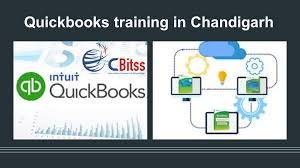Are Homeschooled Kids at a Disadvantage When It Comes to College Admissions?
Homeschooling has grown in popularity over the past few decades, offering parents the opportunity to tailor education to their children’s specific needs. However, a common debate arises regarding whether homeschooled kids face disadvantages, particularly in college admissions. Critics argue that homeschooled students may lack the social, academic, and extracurricular experiences required to be competitive applicants. This article delves into arguments against homeschooling with respect to college admissions and explores whether these concerns hold weight.
Lack of Standardized Metrics
One of the most frequent arguments against homeschooling is the absence of standardized benchmarks. Traditional school systems follow a uniform curriculum, which enables colleges to gauge a student’s academic performance more easily. In contrast, homeschooling lacks these standard metrics, making it difficult for college admissions officers to assess a student’s preparedness for higher education.
Admissions teams often rely on a student’s GPA, class rank, and participation in advanced placement (AP) courses, all of which can be inconsistent or nonexistent for homeschooled applicants. Colleges may also question the academic rigor of a homeschooler’s curriculum, especially if the homeschooling is done without oversight from an accredited institution. While some states require homeschoolers to submit portfolios or standardized test scores, the variability across homeschooling programs may place these students at a perceived disadvantage in the admissions process.
Limited Access to Extracurricular Activities
Another significant concern among arguments against homeschooling is the limited access to extracurricular activities. Traditional high schools offer a wide array of sports, clubs, and leadership opportunities, which colleges often value as indicators of a well-rounded applicant. Homeschoolers, in contrast, may not have the same access to organized activities, which can make it difficult for them to demonstrate skills like teamwork, leadership, and social engagement on college applications.
While some homeschooled students are able to participate in community-based sports teams or extracurricular programs, these experiences are not always as easily verifiable as those within traditional schools. Admissions officers may view the lack of formal extracurricular participation as a red flag, raising questions about the student’s social development and ability to collaborate in a college environment.
Socialization Concerns
Socialization is another topic commonly raised in arguments against homeschooling. Traditional schooling environments expose students to diverse peer groups, helping them develop critical social skills, including conflict resolution, empathy, and teamwork. Some critics argue that homeschooled students, by contrast, may have limited exposure to these interactions, which can affect their ability to adapt to a college setting.
In a traditional high school, students engage with peers, teachers, and administrators daily, preparing them for the social dynamics of college life. Homeschoolers, particularly those educated in isolated settings, may struggle to adjust to the collaborative nature of college classrooms and dorm life. College admissions officers might question whether homeschooled students have the necessary social experience to thrive in these environments.
Lack of Formal Letters of Recommendation
When applying to college, letters of recommendation from teachers and counselors play an important role in admissions decisions. These letters offer insight into a student’s character, work ethic, and academic potential. Homeschooled students, however, may not have access to formal educators who can provide these recommendations, leading to another disadvantage highlighted in arguments against homeschooling.
In many cases, homeschooled students are taught by their parents, and letters of recommendation from a parent are not considered objective by admissions officers. While some homeschoolers take community college classes or participate in co-ops, the lack of traditional teachers in their daily education can make it difficult for them to secure strong recommendations from qualified educators, potentially weakening their application.
Difficulty Demonstrating Academic Rigor
A further point in arguments against homeschooling is the potential difficulty in proving the academic rigor of a homeschooler’s education. In traditional schools, students can demonstrate their academic abilities through AP or International Baccalaureate (IB) classes, honors courses, and standardized tests like the SAT or ACT. Homeschoolers, however, may not have access to such programs, making it challenging to showcase their academic strengths.
Additionally, homeschool curricula can vary widely in quality, with some parents lacking the resources or expertise to provide advanced coursework. College admissions officers may question whether a homeschooled student has been adequately challenged academically, especially when there is little external validation of the student’s learning.
Inconsistent Transcripts
In traditional schooling, students receive a standardized transcript that reflects their academic progress over four years, including class rank and GPA. These metrics are well-understood by college admissions teams, making it easier to compare applicants. However, arguments against homeschooling often point out the inconsistency in homeschool transcripts.
Homeschooling parents are responsible for creating transcripts for their children, which can vary widely in format and content. Some parents may inflate grades, while others may not provide a clear picture of the student’s academic journey. Without a standardized transcript, homeschooled students may struggle to demonstrate their academic achievements in a way that admissions officers can easily interpret.
Limited Networking Opportunities
High schools offer students numerous opportunities to network with teachers, counselors, and peers who can help them navigate the college admissions process. These relationships can lead to valuable guidance, recommendations, and even connections to college admissions representatives. One of the arguments against homeschooling is that homeschooled students may miss out on these networking opportunities, leaving them at a disadvantage when it comes to receiving college advice and support.
Without the same level of access to knowledgeable educators and counselors, homeschooled students may find it more difficult to navigate the complex college admissions process. While many parents are dedicated to helping their homeschooled children apply to college, they may lack the experience and resources that traditional school counselors provide.
Misconceptions About Homeschooling
A significant challenge in arguments against homeschooling stems from the misconceptions that still surround it. Some admissions officers may be unfamiliar with the unique strengths of homeschooled students, viewing them as less prepared or less capable than their traditionally schooled peers. Despite the fact that many homeschoolers excel academically and socially, the lingering stigma can affect their chances of being accepted to top colleges.
These misconceptions can lead to unconscious bias during the admissions process, where homeschooled students are viewed as outsiders or non-traditional candidates. While many colleges are working to become more homeschool-friendly, the lack of familiarity with homeschooling can still be a barrier for some students.
College Admissions and the Homeschooling Stigma
Despite the criticisms of homeschooling, it is important to recognize that not all homeschooled students are at a disadvantage when applying to college. Many homeschoolers excel academically, participate in community activities, and demonstrate strong social skills. However, the arguments against homeschooling reflect genuine concerns that some admissions officers may have about these students’ preparedness for college life.
Over time, more colleges are becoming familiar with the unique strengths of homeschooled students, and some institutions actively recruit them. Still, the lack of standardized metrics, extracurricular involvement, and socialization experiences can make the admissions process more challenging for homeschoolers.
How Homeschooled Students Can Overcome These Challenges
While the arguments against homeschooling highlight potential disadvantages, there are several ways homeschooled students can overcome these challenges and improve their chances of college admission:
- Standardized Testing: Homeschooled students should consider taking the SAT, ACT, or AP exams to provide external validation of their academic abilities.
- Extracurricular Involvement: Students can participate in community-based activities, sports, and volunteer work to demonstrate their well-roundedness and leadership skills.
- Socialization Opportunities: Homeschoolers can seek out opportunities to engage with peers through co-ops, group classes, or dual-enrollment programs.
- Strong Transcripts and Portfolios: A well-documented transcript, along with a portfolio of academic work, can help showcase the student’s achievements in a format that admissions officers can understand.
- Recommendations from Qualified Individuals: Homeschoolers should seek out teachers, coaches, or community leaders who can provide objective letters of recommendation.
Conclusion
While homeschooled students may face certain obstacles in the college admissions process, these challenges are not insurmountable. The arguments against homeschooling emphasize issues like a lack of standardized metrics, socialization concerns, and limited access to extracurricular activities, but many of these can be addressed through proactive efforts on the part of the student and their family. Ultimately, as homeschooling becomes more mainstream and colleges continue to adapt to diverse educational backgrounds, the perceived disadvantages may diminish over time.
click Here to visit the website






